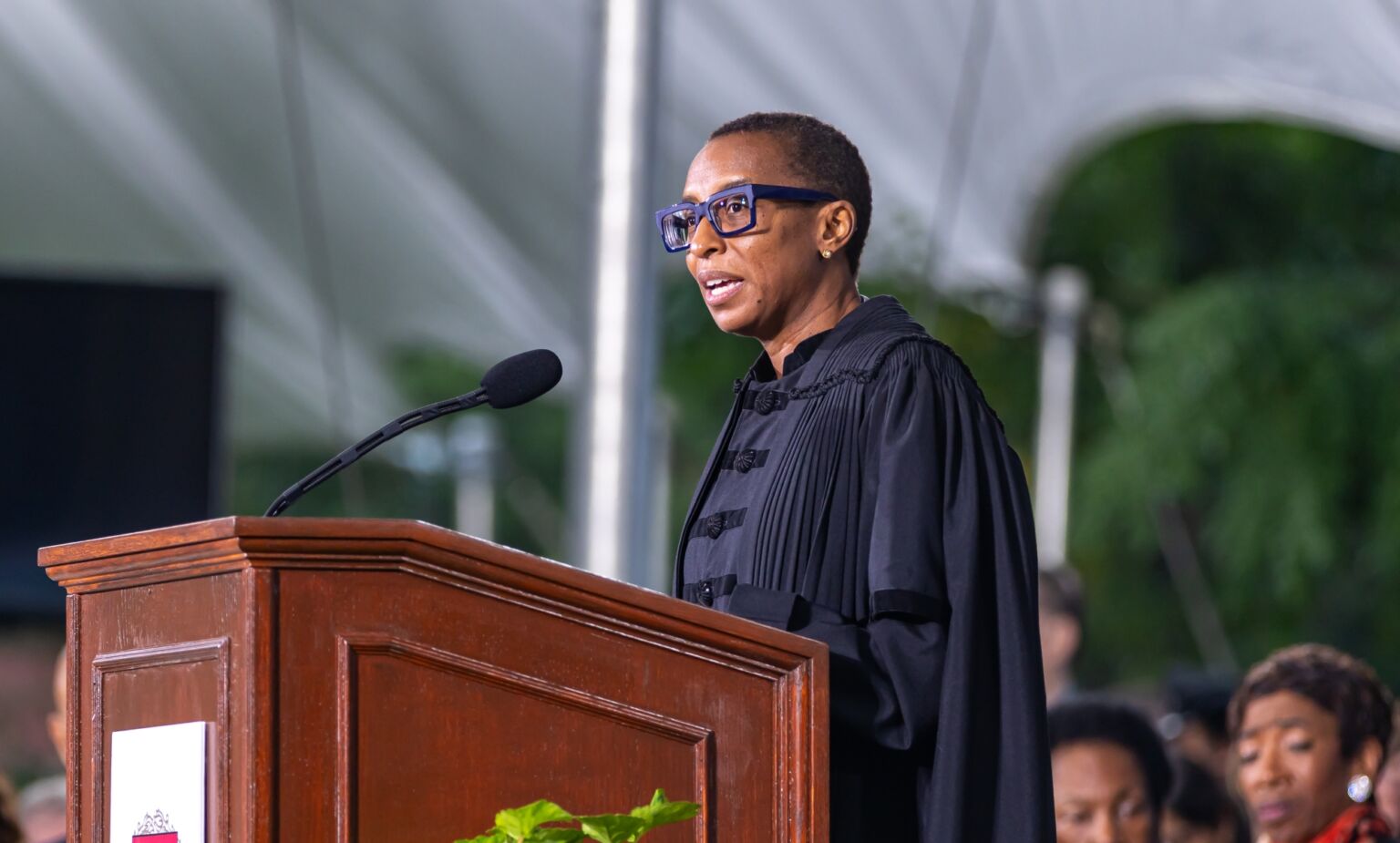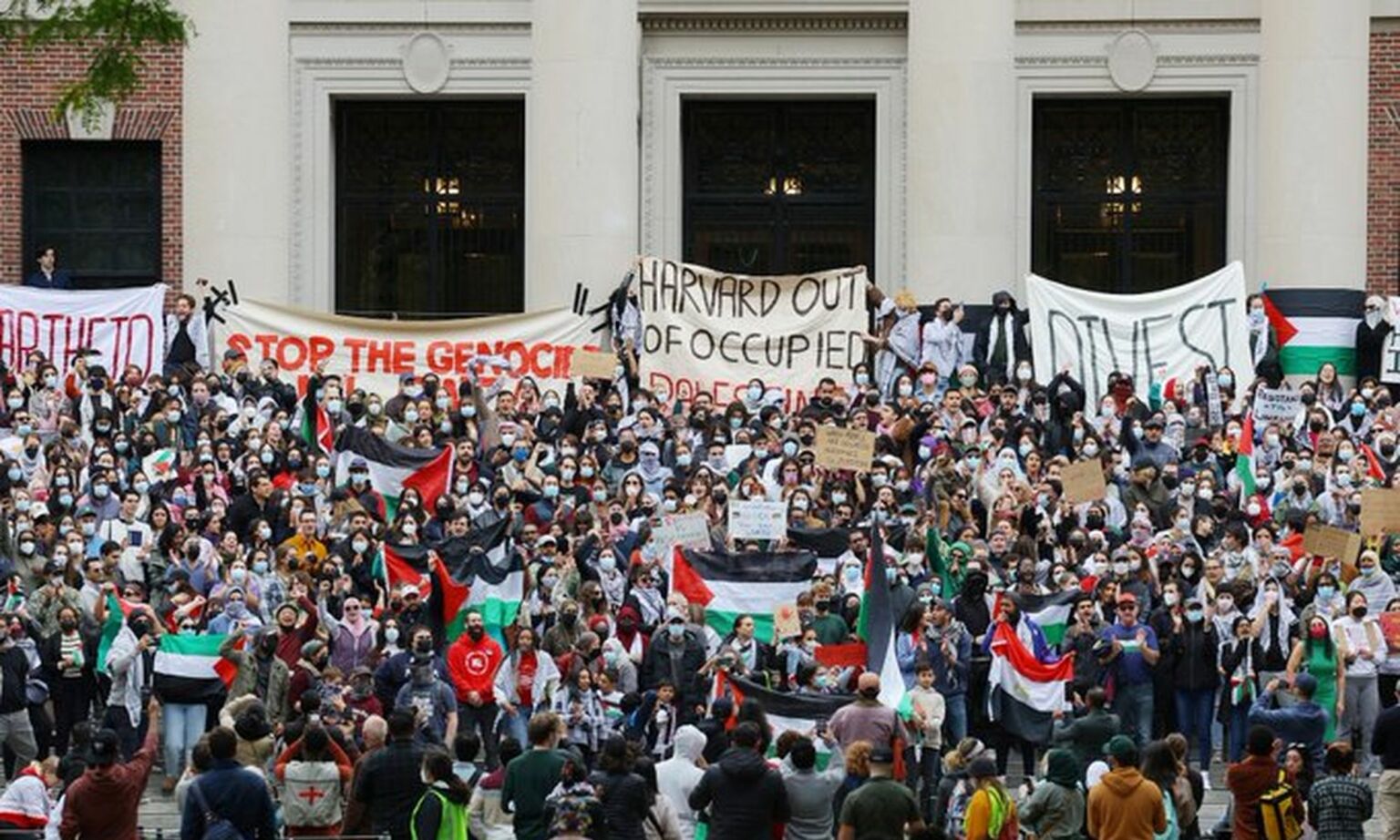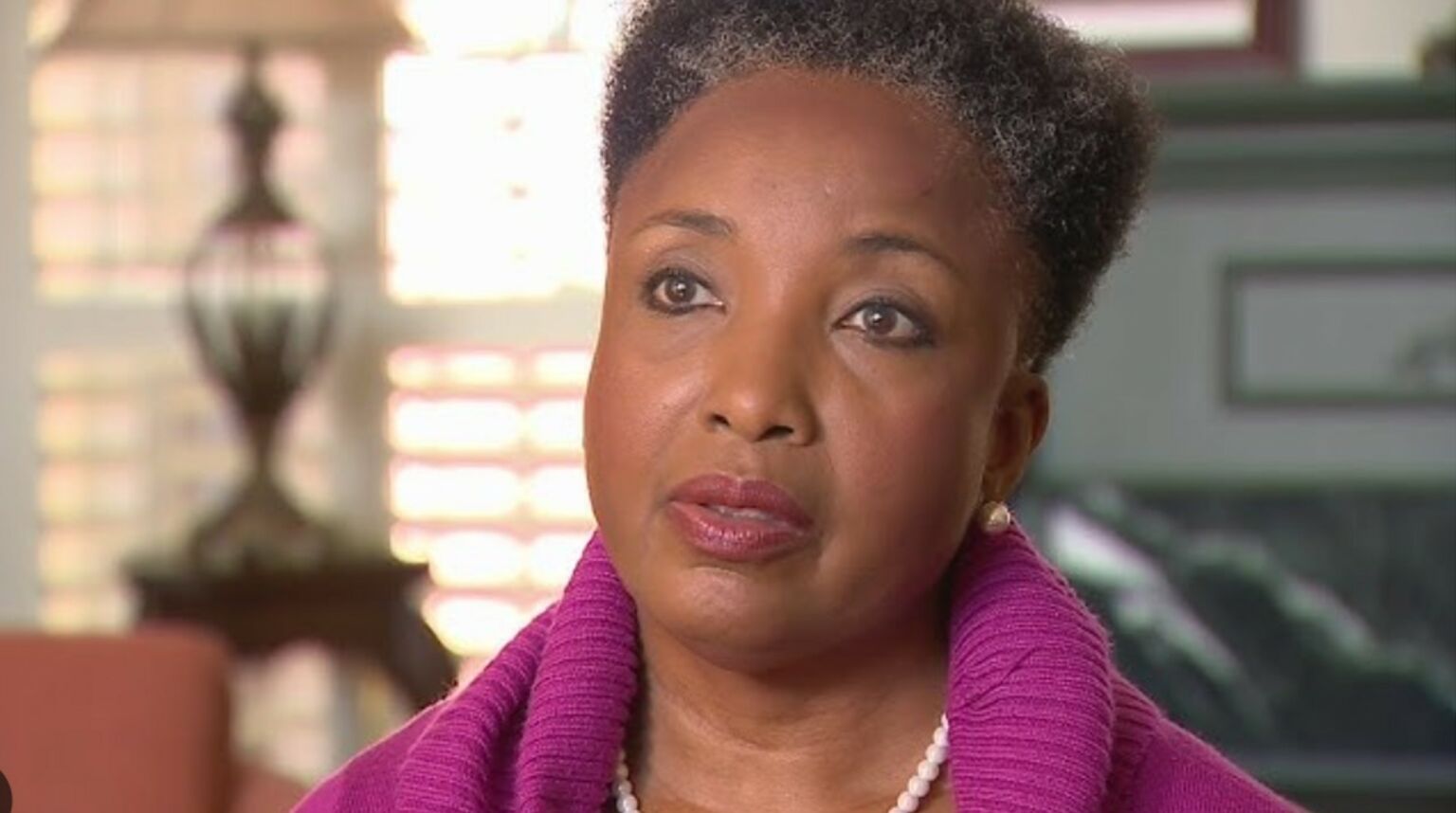
Long-read
Claudine Gay’s tyranny of DEI
The career of Harvard’s disgraced president reveals the sickness at the heart of the Ivy League.
Want to read spiked ad-free? Become a spiked supporter.
With her ousting this week, Claudine Gay has the dubious honour of being both the shortest-lived president of Harvard University and its most notorious. As significant as America’s most prestigious university is to the rest of the world, producing the future leaders who will rule over the nation that we are all both privileged and cursed to live downstream of, few outside the American elites pay much attention to it, or notice when the deckchairs are shuffled among its leadership team. Not so for Gay. Her resignation – following her woeful response to anti-Semitism on campus and revelations about rampant plagiarism in her academic work – made headlines the world over. For it was a pivotal moment in the clash of values that has been raging in American academia, and spilling out across the West.
This clash centres on DEI, ‘diversity, equity and inclusion’ – an ideology that, like so many of the most malignant ideologies today, is presented as something only a monster could oppose. In truth, while dolled up in the language of anti-racism, DEI represents a divisive, racialised worldview – and a corresponding set of policies – that has taken hold in higher education, corporate capitalism and the state. Roughly speaking, it amounts to the institutionalisation of left identity politics and all the ugly things that come with it: concepts of permanent black victimhood and permanent white guilt; racial discrimination revived in ‘progressive’ garb; and an authoritarian bureaucracy to punish wrong-think and ‘protect’ minorities from anything that might offend their allegedly delicate sensibilities. Even at a university, where merit and free speech are supposed to reign.
At Harvard, Gay was its totem. She became president two days after the US Supreme Court’s decision to strike down racial preferences in higher education, euphemistically referred to as ‘affirmative action’. Harvard was a key focus of the case. Its policies were found to have discriminated against Asians to free up places for blacks and Hispanics. The policy had been exposed as an immoral failure. Not only were students – including non-white students – being discriminated against, but the most well-to-do black Americans – many of them the children of wealthy black immigrants – had long been affirmative action’s primary beneficiaries. Gay vowed to respect the ruling, while hinting that Harvard would find a way around it. ‘We will comply with the court’s decision, but it does not change our values’, she said. Harvard would ‘continue opening doors’.
This was pure doublespeak. Gay, who was dean of Harvard’s faculty of arts and sciences before she ascended to the presidency, presided over policies and initiatives aimed at closing minds and carving students up according to race. Christopher Rufo, the conservative crusader who helped expose Gay’s rampant plagiarism, has catalogued the materials pushed on Harvard students by Gay’s diversitycrats. They propagandised that America is marred by ‘systemic racism’ and ‘weaponised whiteness’. Students, Rufo notes, were encouraged to ‘unpack’ their ‘white privilege’, ‘male privilege’ and ‘white fragility’ – a word, popularised by author Robin DiAngelo, used to demonise those who dare push back against the lectures of race experts.
How DEI fuels anti-Semitism
That DEI was calcifying racial division rather than overcoming it had been apparent for some time. But Hamas’s pogrom in Israel – and the tide of Jew hatred it unleashed across the West – revealed something even more troubling. That DEI’s simpleminded narratives – about a world divided between ‘oppressor’ and ‘oppressed’; between ‘privileged’ whites and brutalised black and brown people – had given a green light to the world’s oldest hatred. To a new form of anti-Semitism that cast Jews as the ‘hyper-white’ oppressors of the Palestinians and Palestinians as perennial victims – even if the Palestinians in question were Islamist maniacs murdering innocent Jews.
Harvard’s vast DEI bureaucracy – preoccupied with policing microaggressions and ‘denaming’ buildings – was conspicuously absent as Jew hatred ripped through campus. ‘Pro-Palestine’ demonstrations ushered in a climate of anti-Semitic intimidation and hysteria. Slogans calling for the destruction of Israel – ‘From the river to the sea, Palestine will be free’ – rang out. A Jewish student was mobbed by protesters. At a Hanukkah candle-lighting ceremony, a woman reportedly yelled that the Holocaust was fake. (Anyone claiming these students were just protesting against Israel and expressing solidarity with Palestinians would do well to explain that poisonous little outburst.) Most infamously, 34 student groups signed an open letter, holding ‘the Israeli regime entirely responsible for all unfolding violence’. The bodies in Israel were barely cold, and these young Ivy Leaguers were engaged in a giant act of victim-blaming, stripping the terrorists of responsibility for their racist butchery of civilians.

Gay issued a tepid statement, which condemned neither Hamas nor the students’ letter. She was forced to put out another 16 hours later. ‘Let there be no doubt that I condemn the terrorist atrocities perpetrated by Hamas’, she said. That this clarification was necessary was damning. But Gay was simultaneously keen to stress that the students raging against Israel must enjoy freedom of speech. Harvard ‘embraces a commitment to free expression’, she said. A noble sentiment, of course, but one that rang hollow when coming from the president of Harvard – a university which has an ‘abysmal’ record on freedom of speech, according to the venerable Foundation for Individual Rights and Expression (FIRE). FIRE gave Harvard 0.00 out of 100 in its latest free-speech rankings of universities.
Hypocrisy, double standards – these words are far too anodyne to describe the moral depths that Gay and the rest of the Harvard leadership were plumbing. It was put on an international stage when Gay, alongside the presidents of MIT and the University of Pennsylvania, appeared at a congressional hearing about campus anti-Semitism on 5 December. When asked if calls for the genocide of Jews would fall foul of Harvard’s bullying and harassment policies, Gay and her colleagues gave cold, legalistic answers. ‘It can be, depending on the context’, said Gay. Such a response to any other form of racism – any of the other ‘isms’ or ‘phobias’ which so preoccupy elite universities – would have been unfathomable. Clips of the hearing went viral. Liz Magill, Gay’s opposite number at the University of Pennsylvania, resigned. Harvard stood firm against calls to sack Gay, until mounting allegations of plagiarism made her position untenable earlier this week.
The Israelophobic left have tried to portray Gay and Co as victims of cancel culture – to portray the rage against them as a censorious proxy war on anti-Israel speech. But this wilfully misses the point. Universities should of course be places of unfettered freedom of speech – and yes, that includes hateful, anti-Semitic speech. Racism cannot be defeated through censorship. Gay was right to say that speech should only be punished when it ‘crosses into conduct’ – when it goes from advocating a position to inciting violence, threats or harassment. But what most outraged people about that hearing was the rank double standards on display, paired with a strangely blasé attitude about the obscene bigotry the presidents were discussing. It suggested that the Ivy League’s free-speech absolutism only really kicks in when it comes to expressions of anti-Semitism.
Had Harvard and Co long maintained a steadfast commitment to free expression, then maybe that hearing wouldn’t have made international news. Had they long held to institutional neutrality – refusing to weigh in on controversies, no matter how high the moral stakes – then things might have been different. But they hadn’t. In response to the death of George Floyd, Gay put out a statement expressing the deep ‘vulnerability’ she and other black Harvardians felt, calling on the university to help ‘create a better world’. After 1,200 predominantly Jewish people were murdered in Israel, and as Jewish students were being menaced on Harvard’s campus, Gay hesitated to condemn the murderers while mumbling something about freedom of speech. To Jewish students and faculty, the message was clear: under the cult of DEI, you lot don’t count.
The real ‘racist mob’
An embattled Gay doubled down on DEI in the wake of Harvard’s anti-Semitism scandal. She announced a new education and training plan, ‘Combating Anti-Semitism’, that would ‘build on the initial steps taken’ by its DEI office ‘to more fully integrate anti-Semitism into [its] work’. That the world’s oldest racism wasn’t yet ‘fully integrated’ into the work of an office nominally charged with opposing racism spoke volumes. But as Sean Collins pointed out at the time, tackling anti-Semitism with DEI is a bit like trying to put out a fire with paraffin. ‘DEI ideology fuels animosity towards Jews’, he wrote. After they were accused of ignoring anti-Semitism a few years back, DEI bureaucrats at Stanford made it plain: ‘Jews, unlike other minority group[s], possess privilege and power, Jews and victims of Jew hatred do not merit or necessitate the attention of the DEI committee.’
In the wake of Gay’s resignation, woke ideologues are shamelessly presenting her as a victim of racism. Best-selling ‘anti-racist’ author Ibram X Kendi has compared her critics to a ‘racist mob’. This, from the man who had done more than most to promote racial thinking in America, is a classic case of projection. In truth, the Harvard anti-Semitism scandal exposed how racism is being revived today: through the language of identity politics, through the dictates of DEI, through an ideology that has merely replaced an old racial hierarchy – based on phoney racial superiority – with a new racial hierarchy – based on questionable racial victimhood. In turn, DEI’s dismissal of anti-Jewish victimhood has given cover to anti-Jewish racism. Gay’s critics were undoubtedly the anti-racists in this campus skirmish.
There was also a profoundly racist undertone to the arguments marshalled in defence of Gay. After all, what eventually brought her down was not her mishandling of anti-Semitism – that apparently wasn’t enough to make her position untenable – but allegations of plagiarism. Journalists unearthed almost 50 examples of it, encompassing half of her published work. The desperate attempt to downplay this as ‘sloppy sourcing’, even though Harvard students would be kicked out for less, was the bigotry of low expectations summed up. A black woman, it seems, simply cannot be held to the same standards. This bolstered the suspicion that Gay had been appointed not for her academic prowess, but for the sake of ‘diversity’ and ‘representation’. Her academic career amounted to 11 journal articles and no books – about as much as one of her predecessors, Larry Summers, produced in a single year.
The wrong kind of black academic
Perhaps the biggest lie about the DEI university is that it has lifted up black people – that it has given all black academics and students a dignity and status that had otherwise been denied to them. Gay’s exploits at Harvard explode this myth. DEI has only elevated a narrow black academic elite who preach the woke gospel, often at the cost of other black academics. Indeed, those who refuse to go along with left identity politics – including those with much heftier academic credentials than Gay – have found themselves cast out. Gay had a hand in at least two such castaways.
Roland Fryer is widely considered one of the most gifted economists of his generation. In 2007, aged 30, he became the second-youngest person – and youngest African American – to ever receive tenure from Harvard. His bookshelf groans with accolades, including a MacArthur ‘Genius Grant’ and a John Bates Clark Medal. His academic output makes Gay’s look like a doodle. But his work – focussed on improving the lot of the black poor – proved controversial. The data he mined had a habit of challenging the prevailing narrative. Most famously, in 2016, he published a landmark study showing that while police were more likely to rough up black suspects than white suspects, they were more likely to use deadly force on whites. Fryer called it the ‘most surprising result of my career’. Some have never forgiven him for it.

Two years later, he was left disgraced by a dubious #MeToo scandal. In 2018, his former personal assistant – some say with an axe to grind – accused him of sexual harassment. An investigation ruled that he hadn’t sexually propositioned or touched anyone (his misconduct amounted to some flirtatious messages and a few off-colour jokes) and recommended some workplace sensitivity training. But Gay, along with fellow dean Lawrence Bobo, successfully pushed for much harsher punishment. In the end, Fryer was suspended for two years without pay and his research centre was closed. At one point, Gay reportedly lobbied – unsuccessfully – for Fryer to be stripped of his tenure. Regardless, his career was left in tatters. A documentary on Fryer’s cancellation, produced by Rob Montz, makes a compelling case that it was politically motivated.
Then there was law professor Ronald Sullivan. He made history in 2009 when he – and his wife – were appointed faculty deans of Winthrop House, becoming the first African Americans ever to hold the post. But they were forced out in 2019, after Sullivan was announced as part of Harvey Weinstein’s legal team, as the disgraced movie mogul battled multiple rape and sexual-assualt charges. Winthrop students revolted, insisting Sullivan’s mere presence made them feel unsafe. He tried to defend himself, sending an email to students arguing that even the ‘unpopular defendant’ deserves proper legal counsel. But it wasn’t enough to save him. Rather than stand by Sullivan, Harvard administrators, led by Gay, threw him under the bus. Gay branded Sullivan’s explanation ‘insufficient’. When it was decided that the Sullivans’ contracts with Winthrop would not be renewed, Gay was among the administrators who broke the good news in a meeting with students – who reportedly hugged and thanked them.
Class struggle
When affirmative action was struck down by the Supreme Court last year, ending 50 years of race-based admissions at elite universities, it had long been an open secret that the practice had failed to boost the prospects of deprived African Americans. While some bright, impoverished black youth were being given a shot that might otherwise have eluded them, affirmative action was disproportionately benefitting the sons and daughters of the black upper-middle class. Meanwhile, it polished the halo of administrators, for whom the pursuit of superficial ‘diversity’ had become an end in itself.
So it is with the ideology of DEI – at least if Gay’s story is anything to go by. In a New York Times op-ed, Gay has shamelessly presented herself as the victim of racist, reactionary forces – a target for those who cannot accept that the ‘daughter of Haitian immigrants has something to offer to the nation’s oldest university’. But you won’t be surprised to learn that her background wasn’t quite as boot-strapping as that one-liner might suggest. Gay was born into a family of Haitian concrete magnates. Her father is vice-president of the firm, GDG Béton. Her uncle – the father of feminist writer Roxane Gay – is its president. Claudine was educated at Phillips Exeter Academy, the US’s most prestigious boarding school. As Tyler Austin Harper puts it in the Atlantic, ‘Gay may have changed the colour of the mould, but she sure didn’t break it’.
The same could not be said for Roland Fryer, the star economist she helped to bring down. His stunning breakthrough into the Ivy League belied one of the hardest starts in life imaginable. His mother abandoned him as a child. After his abusive father was sent to prison for rape, Fryer turned to drug-dealing and robbery in his teens, before a run-in with the police, in which he was pressed to the ground at gun point, led him to reconsider his path. He told the New York Times in 2005 that most of his close family were either dead or had spent time in jail: ‘I always think I’m supposed to be dead, not alive, much less at Harvard.’
Gay’s academic work, such as it is, addressed questions of black representation and political participation. One of the academics she plundered was the now-retired professor, Carol Swain. In an article for the Wall Street Journal, Swain accuses Gay of failing to credit material from her 1993 book, Black Faces, Black Interests, which was showered with awards and has been cited in Supreme Court opinions. ‘Gay’s damage to me is aggravated because her early work was in the area where my research is considered seminal’, she writes. Swain, incidentally, was born into abject poverty, growing up in a shack in rural Virginia with no running water. Swain and her 11 siblings shared two beds between them. She didn’t finish high school. After a divorce, she went back to school, before climbing the ladder of higher education, working several side jobs to pay her way. She later received early tenure at Princeton and a full professorship at Vanderbilt University, where she taught for 18 years.

Claudine Gay’s ascension to the pinnacle of American academia reflects an uncomfortable truth. That for all the talk of ‘diversity, equity and inclusion’ elevating the truly marginalised, the outsiders, the identitarian culture on campuses actually empowers the already-insiders – those who mouth the right platitudes; those willing to play the role of victims-cum-representatives; those whose luxury beliefs mirror a luxurious upbringing. Meanwhile, those who had to fight harder than anyone to join the academic elite can be cast aside for daring to dissent against the prevailing groupthink, or have their work stolen while excuses are made for the thief. At Harvard, Gay could do no wrong, despite all the damage she was doing, including to black academics. She was apparently too potent a symbol to fall. Until she did.
The identitarian turn of the Ivy League is not – and has never been – about ‘opening doors’ to those who are truly shut out. The baton has simply been handed from an old establishment to a new establishment. Meanwhile, DEI has fuelled racism in the name of ameliorating it. As Claudine Gay shuffles off the big stage, with her $900,000-a-year Harvard professorship no doubt offering some comfort, it is not just her moral authority that lies in tatters – but that of an entire woke elite whose days, we can only hope, are numbered.
Tom Slater is editor of spiked. Follow him on Twitter: @Tom_Slater_
Main picture by: Charlotte Hysen / Governor Healey’s press office, published under a creative commons license.
Celebrate 25 years of spiked!
A media ecosystem dominated by a handful of billionaire owners, bad actors spreading disinformation online and the rich and powerful trying to stop us publishing stories. But we have you on our side. help to fund our journalism and those who choose All-access digital enjoy exclusive extras:
- Unlimited articles in our app and ad-free reading on all devices
- Exclusive newsletter and far fewer asks for support
- Full access to the Guardian Feast app
If you can, please support us on a monthly basis and make a big impact in support of open, independent journalism. Thank you.








Comments
Want to join the conversation?
Only spiked supporters and patrons, who donate regularly to us, can comment on our articles.